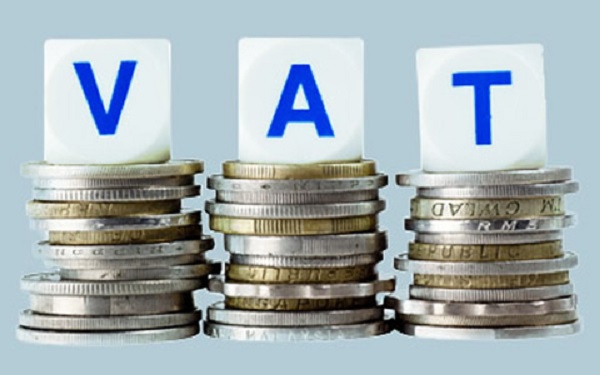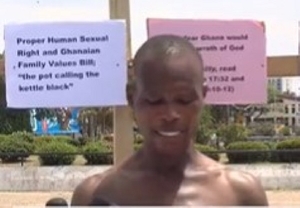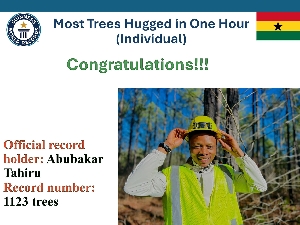 Former President Jerry John Rawlings
Former President Jerry John Rawlings
The idea of charging some fee, so that vehicles which break down on our roads and highways would be removed immediately they happen, can no longer be postponed — it is, as the saying goes, an idea whose time has come.
You do not usually find the NDC and the NPP agreeing to anything. But in this rare case, both parties have worked on the issue at different times and agree that it ought to be done.
The difficulty then is not the initiative in itself. It is rather with the mode of implementation and in this respect, it brings vividly to mind the problems we faced in 1995 with the implementation of the Value Added Tax (VAT) regime in Ghana.
This is why I recommend to the people who are driving the Towing Fee programme under this government to read carefully Seth Tekper’s Why VAT Failed In Ghana (Tax Notes International 12(23) 1801-16 and also DFID’s Consultant Emma Chapman’s work titled “Introducing a Value Added Tax:
Lessons from Ghana. PREM Notes; No. 61. World Bank, Washington, DC. © World Bank dated 2001”.
From these two publications, they would learn the reasons why VAT failed in 1995 and the lessons which were harvested from that failure which subsequently made it a resounding success in 1998. This will help them to quickly chart a new course that will lead to the safe birthing of the Towing Fee initiative.
Economic history
Suffice it to say that throughout the 1970s and 1980s (a process which is still ongoing) the managers of our national economy grappled with ways of remedying the deficiencies of the Consumption-based (Sales) Tax regime in Ghana.
By the early 1990s, we had reached the stage for the introduction of the Value Added Tax regime, hitherto an alien concept to Ghana’s tax administration, to correct the identified weaknesses and bring in more revenue for accelerated national development.
Once the decision was taken, those of us charged with the responsibility to engineer public consent for good but unpopular and or difficult-to-sell Government policies were wheeled in.
Eventually, we worked the government’s communication machinery into fifth gear extolling the virtues of the incoming tax to the people of Ghana who were not quite sure what to think of it or were apprehensive of how it was going to impact their lives.
Before they have had time to make up their minds, it came to pass that in March 1995, the Parliament of Ghana, dominated overwhelmingly by the NDC, passed the VAT into law at 17.5% with the enthusiastic support and encouragement from the World Bank and the DFID.
The public knew that a new tax regime was coming and were assured that it was more equitable and would bring in the funds needed for the roads and bridges to their hometowns and villages; build schools for their children; extend electricity to their homes and hamlets; provide clinics and hospitals as well as all the creature comforts we needed.
But insufficient time had been spent educating the people (who actually earn their daily bread in trade and commercial activities) on how to calculate the VAT.
Plaintain-Cassava VAT
Therefore, no sooner had it hit the ground than all the demons in hell broke jail and headed for Ghana. There was confusion everywhere about who was to charge VAT and who was not to the extent that some people were reported to be charging VAT on cassava and plantains!
In our great hurry to harvest the benefits of the new tax regime, we had not even allowed the VAT administrative structure itself to be properly established. Indeed, very little time —a matter of days — was provided to educate the people in industry and commerce on the computation of VAT.
In the ensuing confusion, prices skyrocketed because everybody was charging VAT when they shouldn’t. Consequently, there was an enormous hue and cry across the length and breadth of Ghana which manifested in demonstrations and civil disturbances leading to the loss of several lives.
The Labour Unions of the Trades Union Congress (TUC) were furious, the Ghana Union of Traders Associations (GUTA) were in arms. The National Union of Ghana Students (NUGS), very vocal in national affairs in the pre-mobile phone era, was equally in arms and so was the opposition NPP (which had boycotted the Parliamentary elections in 1992).
The NPP took advantage of these difficulties by organizing street demonstrations dubbed “Kume Preko” (kill me at once) —events in which the current President, Nana Addo Dankwa Akuffo Addo, — cemented his image as a rabble rousing and courageous political activist!

Phobic disorder
The state of affairs in Ghana between March 1995 and June 1995, when the VAT was introduced and then withdrawn, was similar to the situation in Ghana when Prime Minister K. A. Busia devalued the cedi in 1971 and precipitated the 13th January 1972 coup which brought General Kutu Acheampong and the National Redemption Council (NRC) to power.
It was coup time again in Ghana in 1995. You could smell the frustration of the people of Ghana in the air. You could even feel it for it hung thick in the air as if to dry.
At this juncture, the Council of State requested a meeting with President Jerry John Rawlings to discuss the VAT. The meeting was held one sunlit morning under the therapeutic ambiance of the castle gardens.
My daily schedule at the time included sitting in the President’s meetings and taking notes so that I would remind him of commitments he made at such functions to perform them and also ensure that any reportage of the event was a faithful representation of what transpired.
I sat there in the back with my writing pad and pen ready. The Council of State members led by its Chairman, the versatile Alhaji Mumuni Bawumiah (father of our current Vice President) came in their twos and threes. Each of these noble men and women, including the likes of the late Dormaahene Osagyefo Dr. Nana Agyeman Badu, wore their gravitas like clothing.
The usual chit chat was missing. All the Council members wore serious faces as if they were judges on their way to deliver a death sentence.
After the preliminary courtesies were over, Alhaji Mumuni Bawumiah, a very elegant man in his northern Boubou, opened the meeting by acknowledging the efforts President Rawlings and his government continued to exert to make Ghana a better place.
He, however, cautioned that in their hurry to carry their people onto higher grounds, the best of leaders can move so far ahead of their people that they stand the danger of losing them as Dr. Kwame Nkrumah was accused of doing.
One by one the members spoke of their sad experiences with the implementation of the VAT until it got to the turn of the late Mrs. Susanna Alhassan, a well-known mother and girl-child activist in the post -independence period. Mrs Alhassan had been among the first women Parliamentarians and had held several ministerial portfolios including Minister for Social Welfare in the Nkrumah administration.
Using her huge intellectual endowment, accompanied by her enormous natural female charm and obvious skill as a politician, the veritable Susanna Alhassan set out to tell President Jerry Rawlings why the VAT in spite of all its good intentions and benefits to the people should be withdrawn in its current form, repackaged and brought back later.
Such was the effect of her presentation on me that I can recall her very words 22 years after the event. She concluded by stating as follows:
“Mr. President, I don’t know if the people around you have made these facts of our peoples suffering known to you. Perhaps, for the sake of their jobs they have not told you the truth. And perhaps they did and you did not believe them because you thought it is the consequence of the disruptive work of the opposition.
“But, Mr. President, the truth on the ground is that this VAT has made things so difficult for our people that mothers can no longer afford to buy milk for their babies!”
That was the punch line – the bit about mothers not able to afford milk for their babies hit the man across the face wham!
The tear
President Jerry Rawlings had determined to ride the storm of demonstrations to establish the VAT in Ghana, convinced that it was the best interests of the people of Ghana, but the idea that babies would die or have stunted growth because their mothers could not afford to buy milk because of VAT touched him deeply.
I recall that he sat up suddenly, as people do when the car they are riding suddenly jolts to a halt. Next, he bit hard on his molars. Then he put the palm of his right hand over his forehead and began moving his fingers caressingly over his forehead. The fingers moved slowly to his hair and slowly he moved them through his hair going in circles.
Finally, he leaned in his chair looking down the green grass. The place was quiet. The wind seemed to have stopped. Even the boisterous Senegalese coucals in the Castle garden stopped their racket.
When I had dealt with the lump in my own throat, I looked across at the President and did I see what looked like a tear drop down from his eyes onto the dark glasses that he was wearing and onto the grass?
When he removed the glasses to wipe them, something in his face told me that the Council of State had won the case for the withdrawal of VAT. A week or so after this meeting, the VAT was withdrawn and I replaced with the more familiar sales tax f it was meant to replace.
We went back to the drawing board and did our homework well. VAT was successfully introduced three years later in 1998 with the rate at 10% (which has risen gradually over the years to the current. 17.5% as was originally planned).
I end this short comment by acknowledging my indebtedness to both Emma Chapman and Seth Terkper (incidentally our immediate past Finance Minister) for quoting from their publications.












